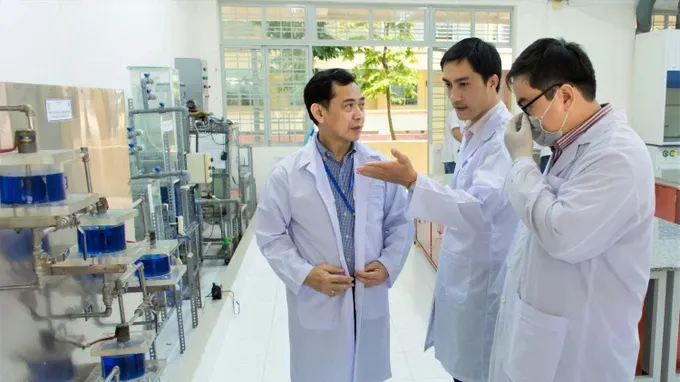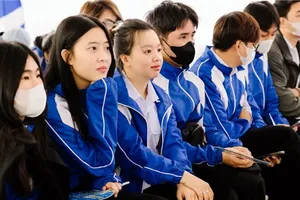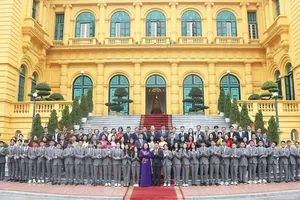The objective is that by the year 2030, 80 percent of these programs will comply with the quality standards established by the accreditation cycle as outlined in the Prime Minister-approved Decision No. 78/QD-TTgCP.

In nearly four years, from 2020 to October 2024, a total of 85 programs have achieved accreditation standards, exceeding the combined total of 68 programs from the previous decade.
According to Director Nguyen Quoc Chinh of the Center for Testing and Assessment of Training Quality of Ho Chi Minh City National University emphasized that ensuring educational quality is the foremost priority for the institution, with a commitment to maintaining and continuously enhancing quality assurance.
Thanks to that, the number of programs meeting international standards tends to increase rapidly.
Up to now, VNU-HCM has led the country with 154 training programs recognized by many international accreditation organizations, such as the Southeast Asian University Network (AUN-QA), the American Council for Engineering and Technology Accreditation (ABET), the Association for European Higher Education Accreditation (ASIIN), the Swiss Government Quality Assurance Organization (FIBAA), the prestigious accreditation organization recognized by the German Accreditation Council (AQAS), the Accreditation Organization of the French Engineering Degree Commission (CTI).
Vice President Quach Thanh Hai of Ho Chi Minh City University of Technology and Education said that the school currently has 27/44 international standard training programs recognized by organizations such as AUN-QA, ASIIN.
Meanwhile, Ton Duc Thang University has impressively 44 out of 45 training programs meeting international standards from prestigious organizations like AUN, FIBAA, and ASIIN. The accreditation from HCERES and FIBAA at the training institution level further demonstrates the high quality of education being offered at the university.
Double benefits
Vice President Quach Thanh Hai recognized that while the process of quality assessment for training programs may involve substantial financial and logistical resources, it is an indispensable endeavor. He emphasized the paramount importance of continuous improvement in educational quality.
While demanding significant investment, the achievement of international accreditation standards yields substantial benefits, including enhanced program prestige, increased demand for graduates in the employment market, and a notable improvement in the productivity and efficiency of human resources
Vice Rector of Lac Hong University Associate Professor Nguyen Vu Quynh stated that the recognition from AUN-QA and ABET indicates that the university's educational program adheres to established standards regarding content, instructional methods, research capabilities, facilities, and the quality of outcomes.
Students can be confident that the training program is meticulously structured, integrating theoretical knowledge with practical application, thereby establishing a robust foundation for their future careers.
Director of VNU-HCM, Associate Professor Vu Hai Quan, has articulated a vision for the institution to emerge as a leading research university system in Asia, emphasizing a commitment to excellence. To achieve this goal, it is essential to uphold and adhere to policies that ensure the quality of training, which serves as a crucial foundation for VNU-HCM's sustainable integration and development. Quality must be substantiated through tangible evidence, such as international accreditation that is acknowledged globally.
As per statistics from the Department of Quality Management under the Ministry of Education and Training, a total of 1,263 higher education programs, encompassing both undergraduate and postgraduate levels, have been successfully accredited and awarded quality accreditation certificates across the nation.
A total of 864 training programs have received accreditation from domestic organizations, while 399 training programs have been accredited by international accreditation bodies. At the institutional level, 183 higher education institutions have attained quality accreditation, with nine of these institutions being accredited by foreign organizations.
























